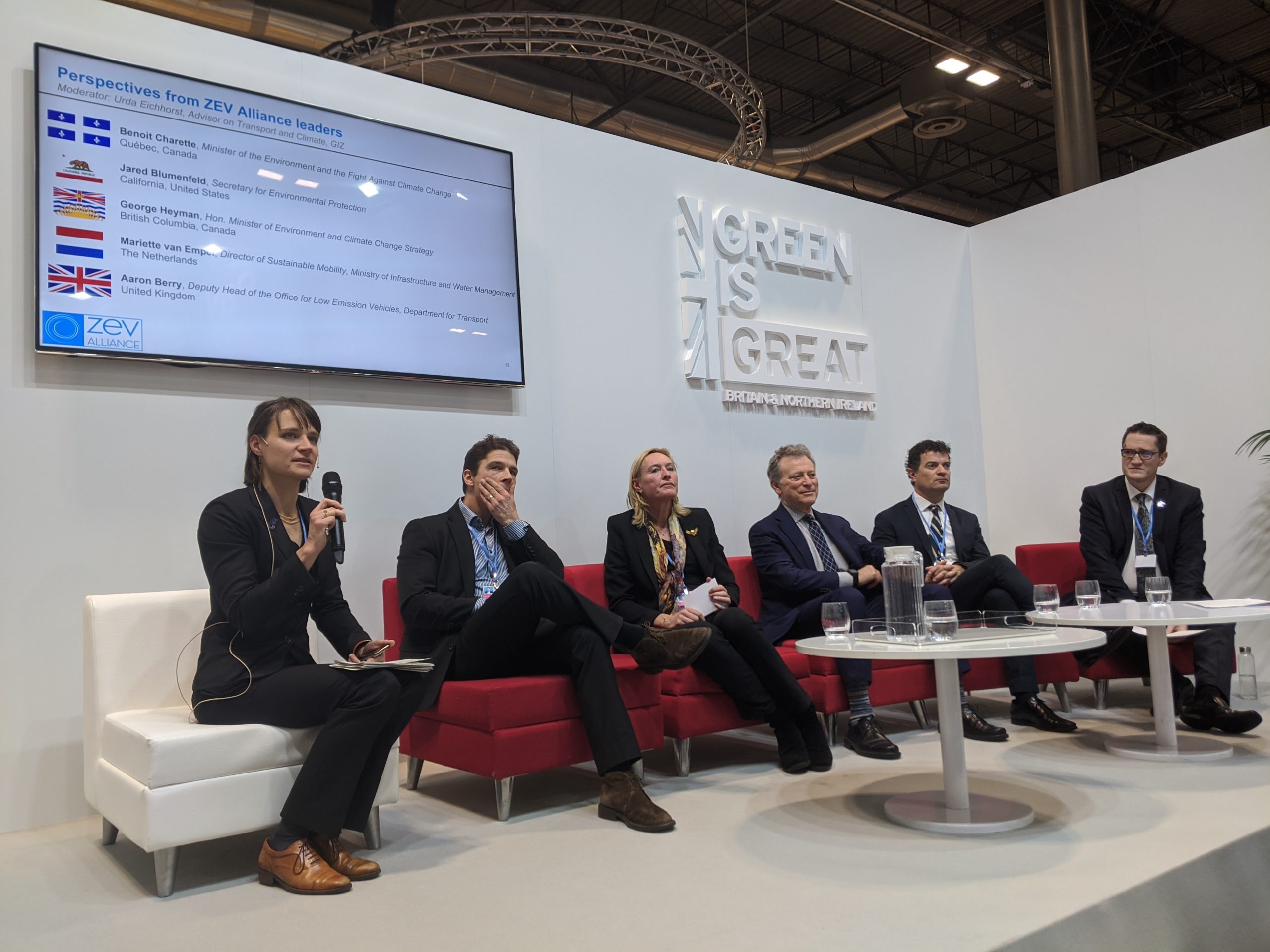About
The International Zero-Emission Vehicle Alliance (ZEV Alliance) is a network of leading national and sub-national governments demonstrating their deep commitment to accelerating the transition to zero-emission vehicles within their markets and through collective action.
The ZEV Alliance fills a unique role in the global shift to zero-emission vehicles by bringing together expert officials within its member governments to candidly share updates and challenges from the front lines of the ZEV transition, discuss solutions and lessons learned, and commission and shape research to fill knowledge gaps and inform policy and programs. Through this collaboration, the Alliance seeks to overcome barriers to enable a swift, fair, and inclusive transition happen faster and more effectively in member jurisdictions and around the world.
“Limiting the impact of climate change is only possible if we transition to cleaner, more energy efficient vehicles. We’re very pleased to be joining with many of the leaders in this growing market, and we look forward to working with them to put more drivers at the wheel of zero-emission vehicles.” – State of California
Vision
To work with a range of stakeholders toward a collective goal of making all passenger and medium- and heavy-duty vehicle sales in our jurisdictions zero-emission vehicles as fast as possible, and no later than 2050.
Goals
Provide officials within member governments unique and relevant information on international best practices and lessons learned to strengthen their governments’ ZEV policies and programs.
Highlight members’ ZEV accomplishments and policy developments on the international stage.
Generate policy recommendations to enable other markets, including emerging and developing economies, to undertake the transition to ZEVs more quickly and economically.
History
The ZEV Alliance was announced alongside the landmark Paris Agreement in 2015 to help achieve deep carbon emission reductions across the transportation sector and was one of the first intergovernmental coalitions to accelerate the ZEV transition. The 13 founding members signed a commitment to jointly advance ZEV ambition and adopt policies related to incentives, charging infrastructure, regulations, and fleet deployment in order to move all passenger vehicle sales to zero-emission.

The ZEV Alliance gradually expanded its membership, scope of work, and activities to reflect the global growth of the ZEV market and the urgent need to decarbonize the road transport sector. At COP26 in Glasgow in 2021, as the world emerged from the COVID-19 pandemic, the 20 members recommitted to their fundamental vision of making all new road vehicles (now including medium- and heavy-duty vehicles) zero-emission as soon as possible, acknowledging the need to decarbonize the vehicle fleet by 2050.
Today, the ZEV Alliance remains unique in its approach of fostering open and collaborative engagement among technical and policy experts at the forefront of the ZEV transition and commissioning cutting-edge research responsive to the members’ most pressing transition challenges. The ZEV Alliance further expanded its collaboration to cover zero-emission technologies for off-road vehicles, rail, maritime transport, and aviation, and to emphasize the need for a just and equitable transition.

How We Work
The ZEV Alliance is a collaborative organization, seeking input and direction from its members to strategize yearly activities and research priorities.
The ZEV Alliance collaborates through monthly virtual meetings where technical and policy officials from the member governments discuss the year’s focus areas, in addition to steering calls to discuss communications, event planning, and administration. The members meet in-person each year at an Annual Assembly, hosted by a member government, to review progress, set institutional objectives, and discuss market and policy trends. Decisions are made by consensus among its 23 members.
The International Council on Clean Transportation (ICCT) serves as secretariat of the ZEV Alliance and is responsible for convening meetings, conducting outreach, and facilitating collaboration and learning among members
Have any questions? Contact us here.
Members
ZEV Alliance members believe that a transition to zero-emission vehicles is a global collective effort that must be accomplished through cooperation, rather than isolation. As such, they seek to learn from each other’s successes and challenges and work together to increase ambition and create smarter policy to address emerging issues. Through this approach, they hope to make the ZEV transition faster, cleaner, and more just, within their own jurisdictions and around the world.
Membership in the ZEV Alliance is open to national and sub-national governments. Members are expected to attend and engage in most activities throughout the year and to openly share and contribute to discussions.